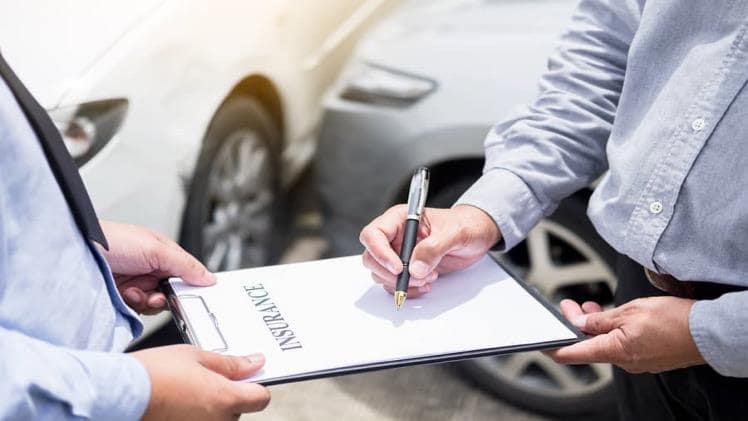If you’re hurt in a car accident in Fort Lauderdale, you may already know that personal injury protection (or “PIP”) coverage is your best bet for recovering damages. Whether you were at fault or not, Florida’s state-mandated auto insurance covers a portion of your medical bills and lost income in a car accident.
However, if your accident was severe, your PIP coverage will probably not cover all your losses, as any experienced DDR Lawyers can explain. Therefore, if someone else caused the accident (or worsened your injuries), you should consider seeking compensation from the at-fault party.
PIP Insurance: An Overview
A PIP policy will pay for the costs that often arise after a collision is caused, regardless of who was at fault. PIP insurance may reimburse lost wages, legal fees, medical expenses, and other charges. In addition, it does not cover incidents that cause property damage, vehicle damage, or accidents in which the driver engaged in criminal activity, worked while driving, or stopped to protect other motorists and their property.
PIP insurance, commonly known as “no-fault insurance,” is necessary for many jurisdictions with no-fault laws. One of the biggest no-fault states in the nation is Florida. On the other hand, Tennessee is regarded as a “fault state,” which means that for a driver to receive compensation, they must be at fault.
Things PIP Does Not Cover
Although PIP is the standard in Florida for no-fault accident coverage, it does not cover every circumstance, every type of damage, or even every person. PIP does not cover the following items:
- Property damage. Getting reimbursed for the repairs on your vehicle requires a separate claim with your insurance company (or the at-fault driver’s insurer). According to Florida law, drivers must carry a minimum amount of property damage liability insurance.
- Motorcycle operators. Motorcycle and other self-propelled vehicle owners and operators are not required to get PIP coverage, nor is it even accessible. In addition to PIP, motorcycle owners and operators must carry other types of auto insurance.
- Expenses exceeding $10,000. PIP will only cover up to $10,000 in medical bills. It’s intended to cover 80% of “reasonable medical expenses.” If your injuries are not “immediate,” PIP may cover up to $2,500 in medical expenditures. You and your health insurer will be responsible for the balance unless you pursue legal action against the driver.
- You’ve lost more than 60% of your earnings. If you cannot work due to your injuries, PIP will reimburse up to 60% of your lost wages, but not if they exceed $10,000. Your injuries may prevent you from returning to work or force you to choose a lower-paying job, which could result in significant financial hardship. The at-fault party is liable for any damages you are entitled to if you proceed outside the no-fault system.
- Pain and suffering. PIP coverage is limited to economic losses only. For example, lost income and medical bills are covered. Unfortunately, Florida’s accident victims suffer physical and emotional trauma. Consequently, crash victims may request damages (compensation) for pain and suffering. However, these damages can only be obtained in a civil action. You will not be compensated for your suffering under PIP.
Rights Of Non- Motorists After An Accident
If you were a pedestrian or cyclist riding a bike or crossing the street when the collision occurred, you would be considered a non-motorist. So, do you have coverage?
If you are injured in an automobile accident, your PIP insurance will provide you with the necessary medical care. According to Florida state law, if you are hit by a car and sustain bodily injury, your insurance will pay PIP benefits; however, this coverage is not available if you are a self-propelled vehicle occupant.
In addition, if a household member has a car but you don’t, you can be protected by their PIP insurance, depending on the policy.
PIP Claims Deadlines And Filing Procedures
There are strict guidelines to follow when filing a PIP claim in Florida. It is imperative that all medical care be obtained within two weeks of the auto accident to qualify for PIP benefits.
A claim that is submitted after two weeks will not be approved. Due to Florida’s high level of insurance fraud, your insurer has up to 60 days to verify your claim. However, even if there is suspicion, they are still required to cover your damages within 30 days.
If your case is complicated or your insurer is causing you problems, you might want to hire a personal injury attorney to ensure you get your compensation. You should keep track of your accident-related medical costs in the interim.
You must submit a “Wage and Salary” verification that your employer has completed receiving work loss benefits. Your earnings for the 13 weeks prior to the accident are shown in the confirmation. A lawyer could be able to ensure that your employer submits the verification quickly. You might also be asked to present a note from your doctor describing your disability.
Under PIP, you have a legal right to sue.
No-fault states like Florida implement PIP laws to cut down on the number of lawsuits filed by individuals for damages. Florida and the majority of no-fault jurisdictions restrict drivers’ ability to sue when their injuries are considered fatal, significantly disfiguring, and permanent. Florida, however, also permits drivers to file a lawsuit even if the harm was not serious, provided that the medical expenses were more than $10,000.
Therefore, you are permitted to sue the at-fault motorist for the $10,000 that is not covered by your PIP if you are hurt in an accident and incur hospital expenditures totaling $20,000. Additionally, you have the right to sue them for any emotional distress you believe the injuries have caused you.
Although Florida does not need that coverage, if you were sued for expensive medical bills, the other driver might file a claim against your bodily injury insurance rather than you.

